Complete Solutions to Check point 14.4 of chapter THERMOMETRY THERMAL EXPANSION AND KINETIC THEORY OF GASES of Class 11 book with complete answers and questions
| Class 11 | PHYSICS |
| Chapter | THERMOMETRY THERMAL EXPANSION AND KINETIC THEORY OF GASES |
| DC PANDEY NEET | Check point 14.4 |
| Number Of Questions | 25 |
| Academic Year | 2023-24 |
The adjoining fgure shows graph of pressure and volume of a gas at two temperatures `T_(1)` and `T_(2)` Which one the following is correct
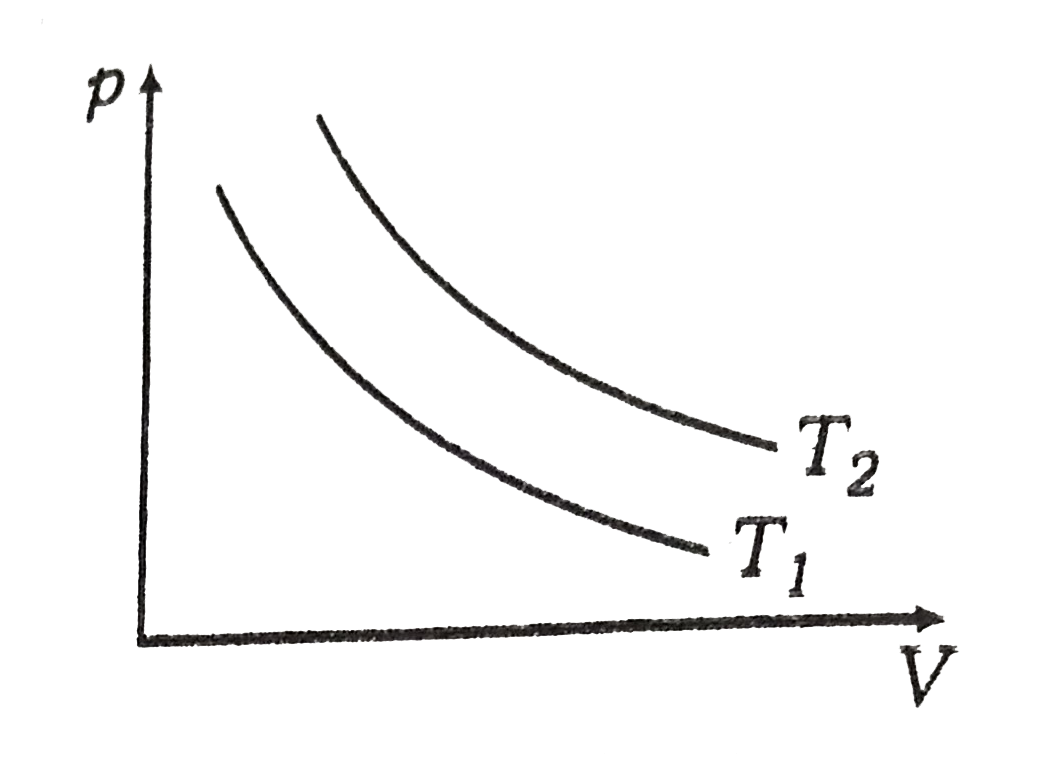
View SolutionIn a gas equation, `PV = RT, V` refers to the volume of
View SolutionWhat is the degree of freedom in case of a monoatomic gas?
View SolutionCalculate the total number of degree of freedom for a mole of diatomic gas at STP.
View SolutionThe degrees of freedom of a molecul of a non-linear triatomic gas is (ignore vibraional motion)
View SolutionThe mean kinetic energy of one mole of gas per degree of
View SolutionThe average translational kinetic energy of `O_(2)` (molar mass 32) molecules at a particular temperature is `0.048 eV`. The translational kinetic energy of `N_(2)` (molar mass 28) molecules in (eV) at the same temperature is (JEE 1997)
(a) 0.0015 (b) 0.003 ( c) 0.048 (d) 0.768
View SolutionA perfect gas at `27^(@)C` is heated at constant pressure so as to triple its volume. The tmemperature of th gas will be
View Solution16 gram of oxygen, 14 gram of nitrogen and 11 gram of carbon dioxide are mixed in an enclosure of volume 5 L and temperature `27^(@)C. The pressure exerted by the mixture is
View SolutionA balloon is filled at `27^(@)C` and 1 atm pressure by `500 m^(3)` He. At-`3^(@)C` and 0.5 atm pressures, the volume of He-gas contained in balloon will be
View SolutionAperfect gas at `27^(@) C` is heated at constant pressure soas to duuble its volume. The increase in temperature of the gas will be
View SolutionFigure shows graphs of pressure versus density for an ideal gas at two temperatures `T_(1)` and `T_(2)` Which is correct ?
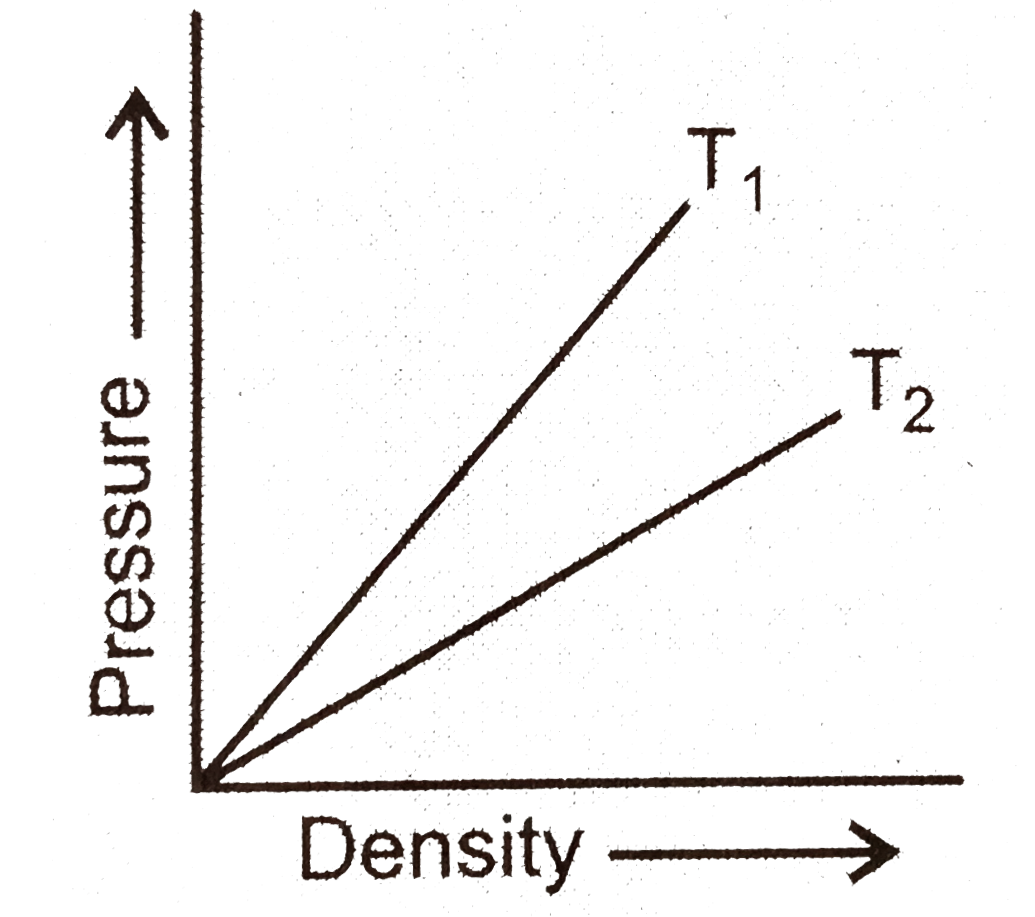 .
.
View SolutionFrom the p-T graph want conclusion can be drawn?
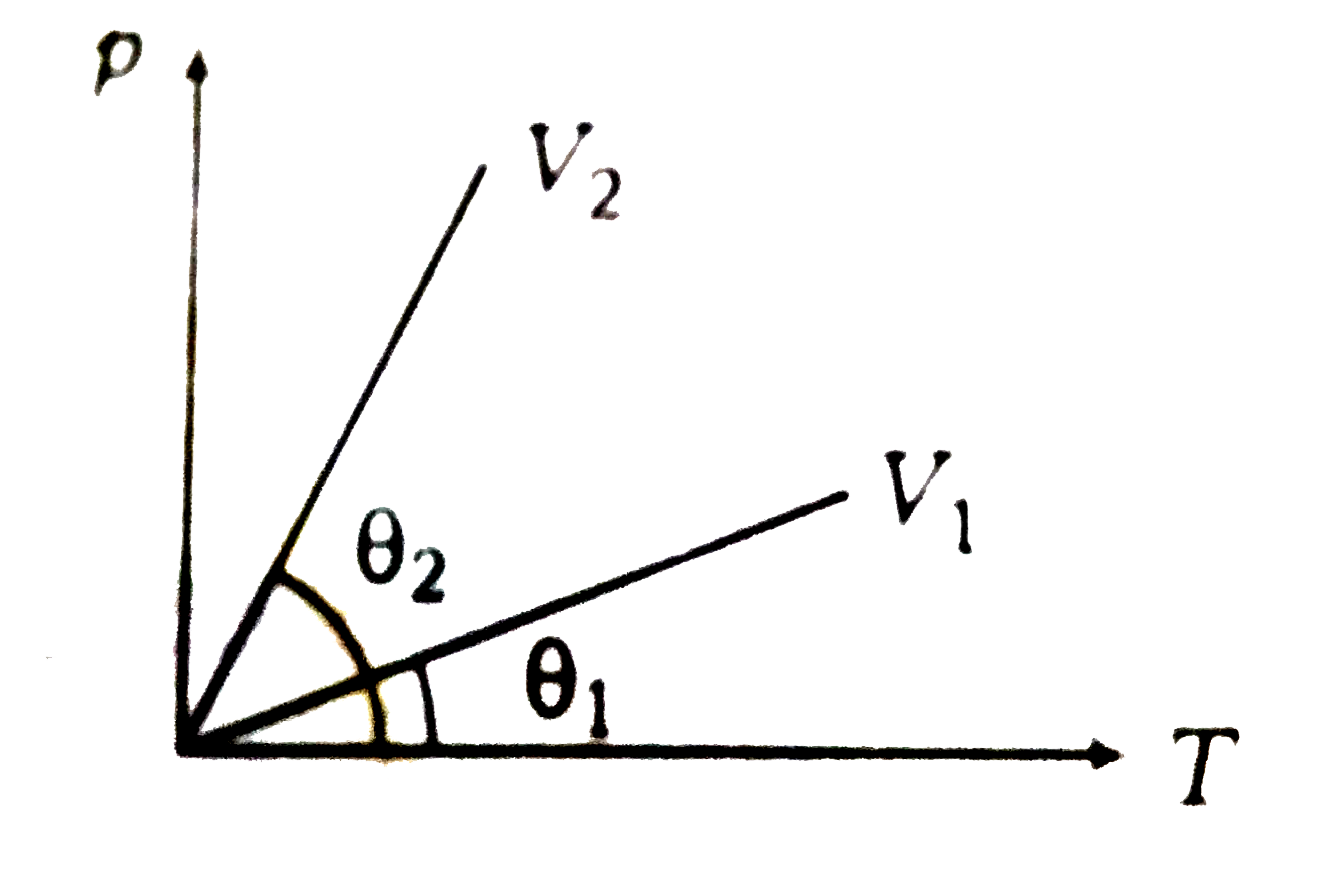
View SolutionA cylinder containe 20 kg of `N_(2)` gas (M= 28 kg `K^(-1) mol^(-1))` at a [ressire pf 5 atm. The mass of hydrogen (M = 28 kg `K^(-1) mol^(-1))` at a pressure of 3 atm contained in the same cylinder at same temperature is
View SolutionTwo different isotherms representing the relationship between pressure p and volume V at a given temperature of the same ideal gas are shown for masses `m_(1)` and `m_(2)` then
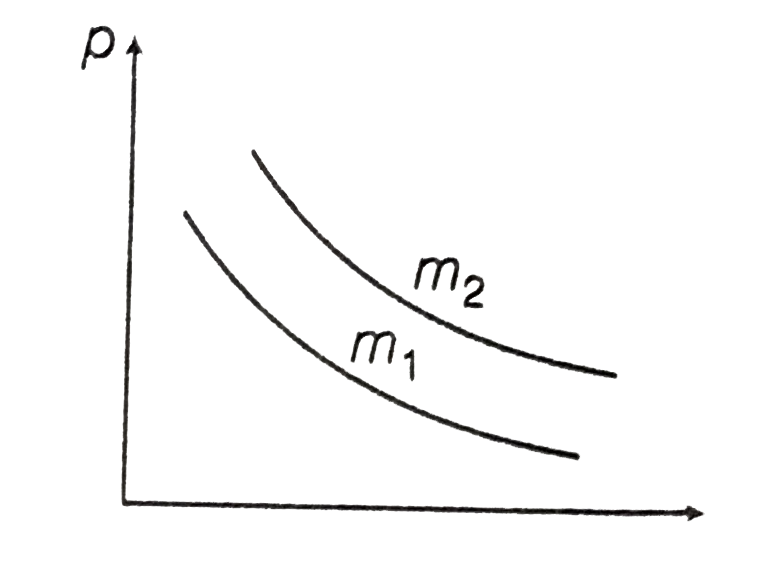
View SolutionA gas is found to obey the law `P^(2)V = constant`. The initial temperature and volume are `T_(0) and V_(0)`. If the gas expands to a volume `3 V_(0)`, its final temperature becomes
View SolutionA gas has volume `V` and pressure `p`. The total translational kinetic energy of all the molecules of the gas is
View SolutionA vessel contains a mixture of one of oxygen and two moles of nitrogen at `300K` The ratio of the average rotational kinetic energy per `O_(2)` molecule to `N_(2)` molecule is .
View SolutionTwo monoatomic gases are at absolute temperatures 300 K and 350 K respectively. Ratio of average kinetic energy of their molecules is
View SolutionAt `27^(@)C` temperature, the kinetic energy of an ideal gas is `E_(1^.)` If the temperature is increassed to `327^(@)C,` then the kinetic energy will be
View SolutionTemperature remaining constant, the pressure of gas is decreased by 20%. The percentage change in volume
View SolutionOne litre of an ideal gas st `27^(@)C` is heated at a constant pressure to the `297^(@)C.` Then, the final volume is the approximately
View SolutionIn the given (V-T) diagram, what is the relation between pressure `P_(1) and P_(2)` ?
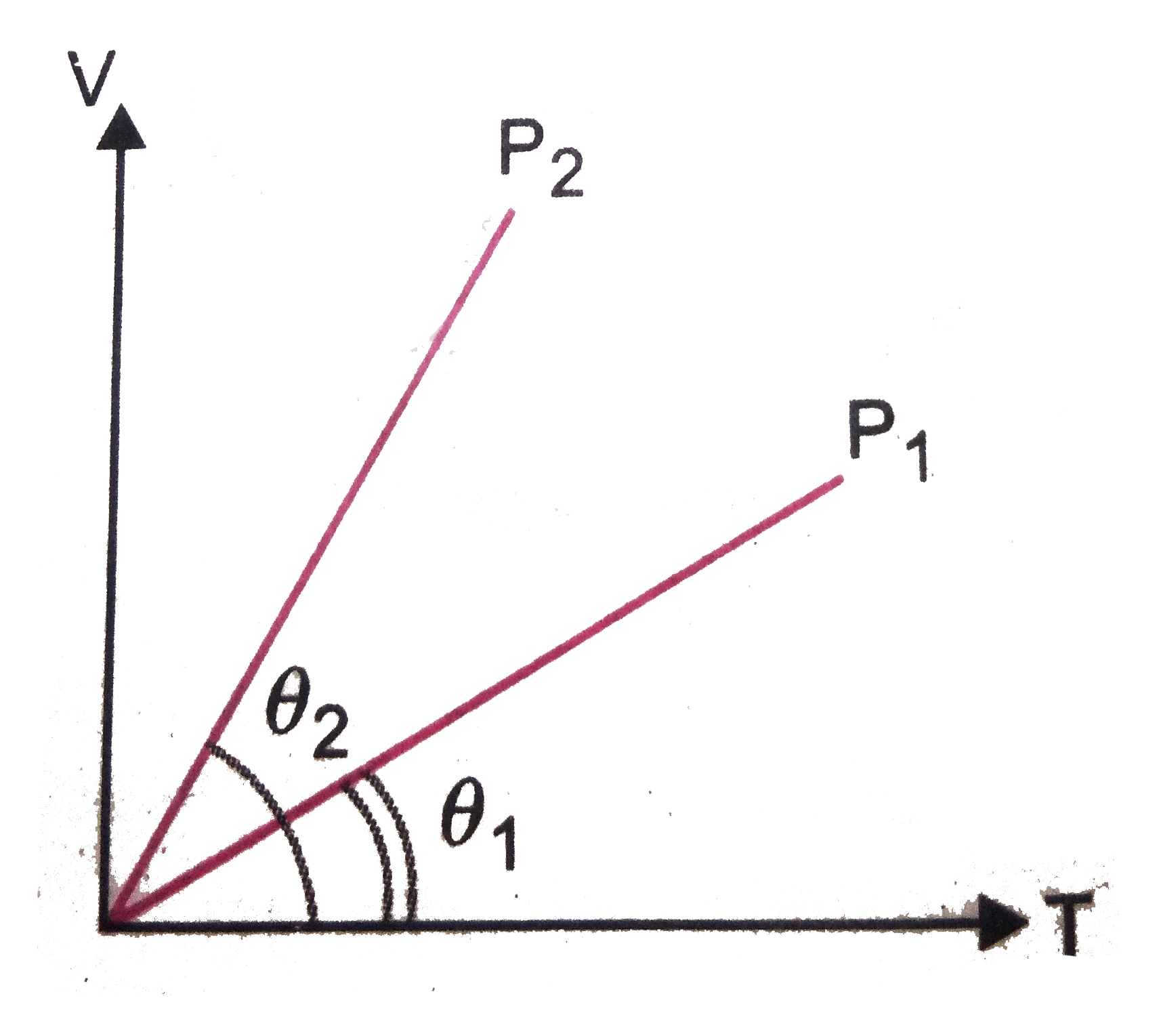
View SolutionThe gas in a vessel is subjected to a pressure of `20` atmosphere at a temperature `27^(@)C`. The pressure of the gas in the vessel after one half of the gas is released from the vessel and the temperature of the remainder is raised by `50^(@)C` is
View SolutionThe graph which represents the variation of mean kinetic energy of moleules with temperature `""^(@)C` is ?
View Solution
Check point 14.4 questions and complete solutions for chapter THERMOMETRY THERMAL EXPANSION AND KINETIC THEORY OF GASES of DC PANDEY PHYSICS (HINGLISH) of Class 11